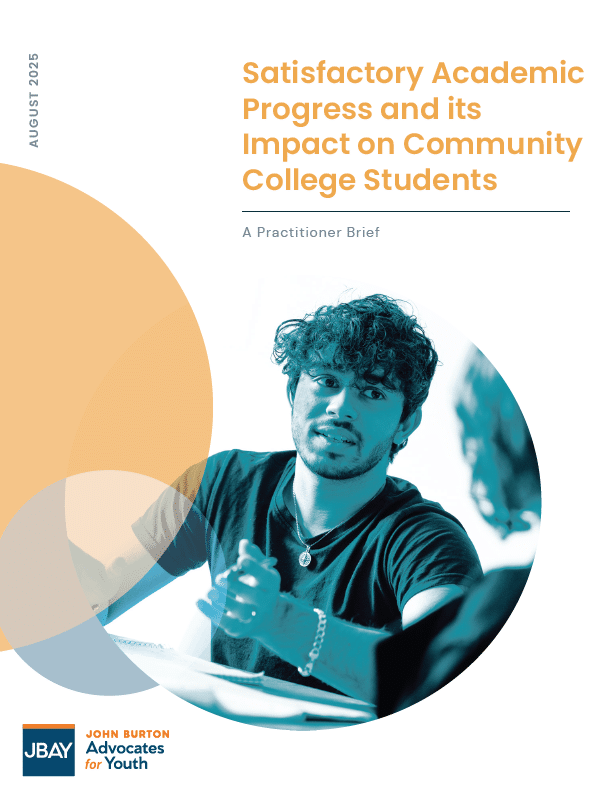Education
Satisfactory Academic Progress and AB 789: Practitioner Guidance Toward Compliance
This practitioner brief, published in August 2025 by John Burton Advocates for Youth (JBAY), examines the impact of Satisfactory Academic Progress (SAP) policies on community college students, particularly low-income, students of color, and foster youth. SAP standards, which require students to maintain a minimum 2.0 GPA and complete courses on time to retain financial aid, often act as hidden barriers to student success. The report highlights disparities in SAP compliance, with students of color, foster youth, and academically disadvantaged groups facing the steepest challenges. It also explores the outcomes of Pell Grant, Cal Grant B, and California College Promise Grant (CCPG) recipients, emphasizing the need for equity-focused interventions to prevent aid loss and improve graduation rates. The brief underscores the importance of early support, culturally responsive advising, and flexible financial aid policies to address systemic inequities.
The report also details JBAY’s efforts to support institutions in implementing California’s Assembly Bill 789, which mandates student-friendly, equity-based SAP policies. It includes insights from Solano Community College, which successfully aligned its SAP policies with AB 789 through clear communication, procedural updates, and equity-driven practices. The brief concludes with actionable recommendations for practitioners, such as targeted support for foster youth, disaggregating SAP data by race/ethnicity, and leveraging the flexibility of CCPG as a model for equitable aid retention. By addressing these challenges, the report aims to ensure that SAP policies support, rather than hinder, student success and equity.
These checklists offer step-by-step support to help youth become college and career bound.
English

